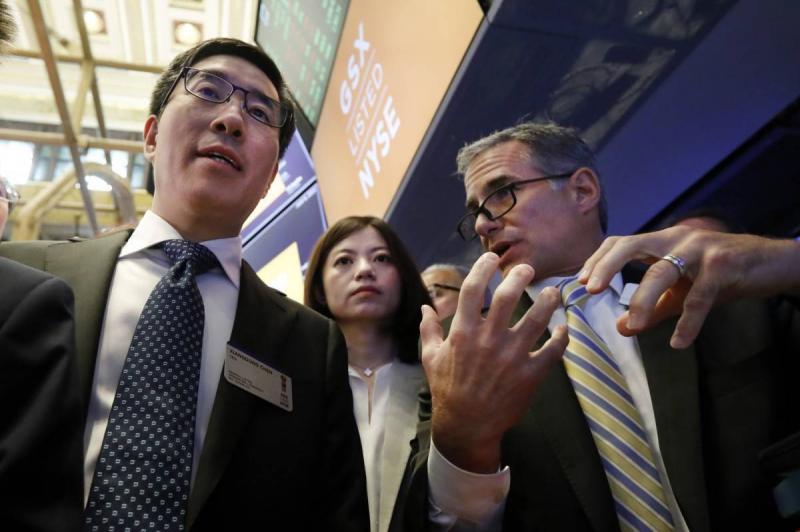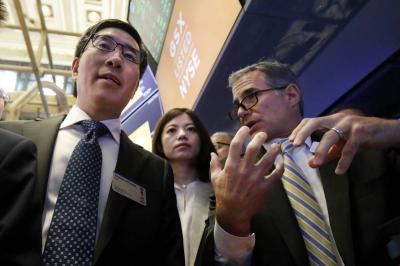Larry Chen, a former teacher at a school in a poor Chinese village, is on the verge of losing his billionaire status as the stock price of his online education service company plummets. GSX Techedu Inc's stock fell by 4% in New York trading last Wednesday following a downgrade from Goldman Sachs regarding its future outlook and target price, leading to an overall decline of 88% in the stock value since the end of January. This resulted in a loss of approximately $14 billion from Chen's wealth, which has decreased to around $1.9 billion, according to Bloomberg's Billionaires Index.
The Chinese company has faced a series of challenges, including a governmental crackdown on online education platforms, expectations of weaker than anticipated performance, and the collapse of Archigos Capital owned by Bill Huang, a key investor in the company. Tommy Wong, an analyst at China Merchants Securities International based in Hong Kong, stated that "political risks are the most significant risks to buying stocks at this time." A spokesperson for GSX declined to comment on the stock decline or Chen's wealth.
The education industry in China is under increasing scrutiny following President Xi Jinping's statements in March criticizing the pressures caused by after-school tutoring on children. The Chinese Ministry of Education plans to create a department for the first time, tasked with overseeing all private education platforms, according to sources familiar with the matter who spoke to Bloomberg. Sandy Chen, a spokesperson for GSX, said this week that the company has suspended its pre-school education services for children aged 3 to 8 in compliance with regulations prohibiting kindergarten and private schools from teaching primary school curricula.
Chen noted the layoffs as a result, but refused to disclose the number of staff members who lost their jobs, while Chinese media reported that the company had laid off nearly a third of its workforce. Last April, GSX was fined the maximum of 500,000 yuan ($78,356) among four private education service providers for offering false or misleading pricing to attract customers.
These factors have severely impacted Chen, who owns about 44% of GSX shares, especially as they coincided with a decline in stock prices under pressure from negative earnings forecasts, and the company's announcement at the end of May about projecting revenues for the second quarter below the average analyst expectations.
Moreover, the collapse of Archigos in March, owned by Huang, significantly affected stock performance after it failed to meet margin purchase requests. Huang's family investment office had built investment positions relying on leverage in GSX shares and other companies using margin purchases, and as stock prices fell, banks demanded collateral to cover positions that Huang could not meet, causing large blocks of the company's and other stocks to be sold, resulting in a 56% drop in GSX’s stock in one day.
Chen's wealth tripled over just two weeks to reach $15.6 billion in January due to the surge in GSX’s stock, despite the company's announcement in September that the U.S. Securities and Exchange Commission was investigating it, along with skepticism from some short-sellers, including Carson Block’s Muddy Waters regarding the company's performance.
Chen began his career as a middle school teacher before joining New Oriental Education & Technology Group Inc in 1999, eventually becoming CEO before moving to GSX in 2014. GSX's stock rose more than 13-fold since early 2019, reaching its peak on January 27 amid rising revenues for the company, followed by skepticism from short-sellers who raised numerous questions about the company’s performance.
In a bid to reassure his employees following the fallout from Archigos, Chen sent an internal message on March 29, urging them to disregard short-term market movements and focus on long-term value. However, traders interested in buying GSX stock, betting on its rise, have begun to doubt the company's long-term value following the Chinese government's imposition of stricter regulatory controls on the industry. Wong from China Merchants Securities stated, "We expect slower revenue growth with better long-term profitability, unlike before when growth was achieved at any cost."




